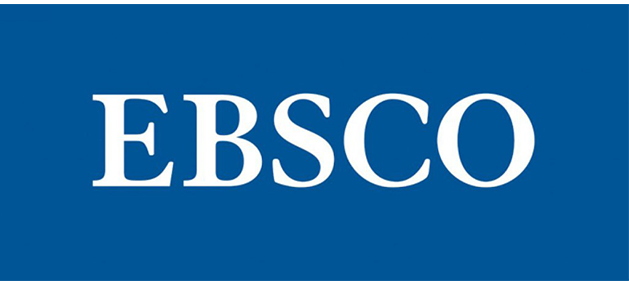THE IMPACT OF GLOBALIZATION ON THE DEVELOPMENT THE CIRCULAR ECONOMY IN SERBIA
Keywords:
circular economy, globalization, circular economy standardsAbstract
The fact is that globalization in itself is a contradictory and very current topic, so one of the motives for this research is to review / understand how the trends and challenges of global progress reflect on the development of the circular economy.The subject of this paper is posed in the form of a question: what is the role of the concept of globalization in the implementation of the circular economy? Has the circular economy been implemented in Serbia, which, like the rest of the world, is included in the globalized world? The aim of the work is to investigate how, through which factors and mechanisms globalization contributes to the implementation of the circular economy, as well as whether the mechanism and significance of that influence is implemented in companies or is more present in the minds of individuals as a theoretical concept. It can be concluded that the ubiquity of globalization, i.e. the connection of consumers, companies, states, the availability and dissemination of information, the dissemination of knowledge influences the implementation of circularity and that the awareness of it is present, but that it is still more at the theoretical level than that the circular economy has really been implemented in Serbia.The success of organizations in global competitive business conditions is connected with the application of circularity, that is, with the transition from line to circular economy, and standards can contribute to this because they represent frameworks for the implementation of circular economy principles.
References
Ellen Mac Arthur fondation (2013). What is a circular economy, downloaded from https://ellenmacarthurfoundation.org/topics/circulareconomy-introduction/overview
Giddens, A. (1990). The Consequences of Modernity, Stanford University Press, Stanford, CA, pp.64
Gračanac, A.(2009). Globalno bankarstvo, Fakultet za uslužni biznis , Sremska Kamenica,str. 11
Krouse, H.(2019). The importance of globalization for the organization. Journal of Entrepreneurship and Business Resilence Vol.2. No.2 , pp 41-47
Lončar, Ј. (2020). Globalizacija ili održivi razvoj? Geografski horizont 2, str.7-16
Mihajlov, A. (2018). Koncept cirkularne ekonomije. Predavanje za studente, str. 12, downloaded from: http://ambassadorsenv.com/en/files/CirEc-AnMihajlov-sr.pdf
Mitrović, Dj. i Pešelj, B(2021). Cirkularna ekonomija , principi, merenje i implementacija, Centar za istraživačku delatnost. Ekonomski fakultet. Beograd, str.57-62
Momirović, D., Nestorović, O. i Milosavljević, G. (2010). Menadžment I održivi razvoj u vremenu svetske ekonomske krize, Međunarodna naučna konferencija, Menadžment, Kruševac, str.4
Nićin, N.,Bogovac, M. i Bulatović,A.(2017). Globalizacione promene i procesi FBIM Transactions Vol.5. No.2, pp. 99-108
Nealon, S. (2020). Impact of globalization on organizational behaviour in business environment. Journal of Entrepreneurship and Business Resilence Vol.3. No.2 , pp 33-38
Organization for Economic Cooperation and Development (2022). RE-CIRCLE: Resource efficiency and circural economy, downloaded from https://www.oecd.org/environment/waste/recircle.htm
Okvir za implementaciju cirkularne ekonomije u organizacijama, SRPS Z.Z2.001:2022 (2022). Institut za standardizaciju Srbije, Beograd, str. 69
Perrine, M.(2018). Effects of globalization on an organisation. Journal of Entrepreneurship and Business Resilence Vol.1. No.2 , pp. 41-47
Petrović, Z., Vićentijević, K., Stefanović, D. i Stanić, N. (2014). Savremeni oblici nematerijalnih ulaganja u eri informacionih tehnologija, Sinteza, 559-563.
Radovic Marković, M. i Vujičić, S. (2014a). Innovative global companies – some case studies in the Proceedings, Entrepreneurship: Factors Affecting Small-Scale Business Performance and Development. Faculty of Business Economics and Entrepreneurship, Belgrade.
Stoimenov, S.( 2022). Transition to the circular economy- awarness in Serbia of the basic principles of the circular economy, Contemporary management challenges and the organizational sciences, BAS Institute of Management- Bitola, str. 68
Vukadinović,P.(2018). Ekologija izmedju linearne i cirkularne ekonomije, Ecologica, vol.24(90), str. 231-236, dowloaded from file:///C:/Users/WinX/Downloads/ODLINEARNEKACIRKULARNOJEKONO MIJI.pdf
Štiglić, Dž. (2002). Protivurečnosti globalizacije. SBM-x, Beograd, str.23
Downloads
Published
How to Cite
Issue
Section
License

This work is licensed under a Creative Commons Attribution 4.0 International License.
http://creativecommons.org/licenses/by-nc-nd/4.0














